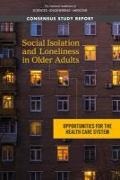Description
Détails du produit
| Auteurs | Board on Behavioral Cognitive and Sensory Sciences, Board On Health Sciences Policy, Committee on the Health and Medical Dimensions of Social Isolation and Loneliness in Older Adults, Division Of Behavioral And Social Scienc, Division of Behavioral and Social Sciences and Education, Health And Medicine Division, National Academies Of Sciences Engineeri, National Academies of Sciences Engineering and Medicine |
| Edition | National Academies Press |
| Langues | Anglais |
| Format d'édition | Livre de poche |
| Sortie | 30.11.2020 |
| EAN | 9780309671002 |
| ISBN | 978-0-309-67100-2 |
| Pages | 316 |
| Dimensions | 152 mm x 229 mm x 23 mm |
| Poids | 476 g |
| Catégories |
Sciences naturelles, médecine, informatique, technique
> Médecine
> Spécialités non cliniques
Sciences sociales, droit, économie > Sociologie > Théories sociologiques |
Commentaires des clients
Aucune analyse n'a été rédigée sur cet article pour le moment. Sois le premier à donner ton avis et aide les autres utilisateurs à prendre leur décision d'achat.
Écris un commentaire
Super ou nul ? Donne ton propre avis.

